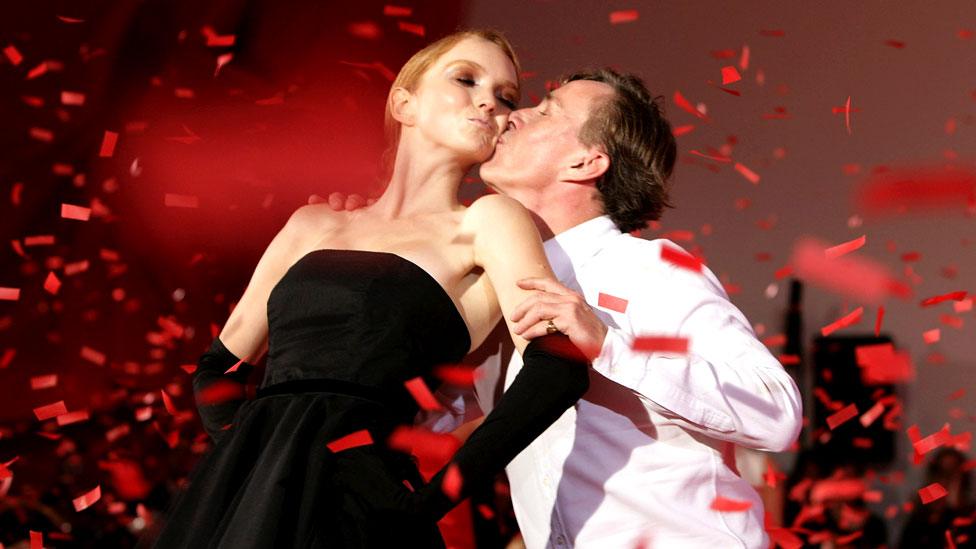London Fashion Week: Is UK fashion suffering from Brexiety?
- Published
- comments
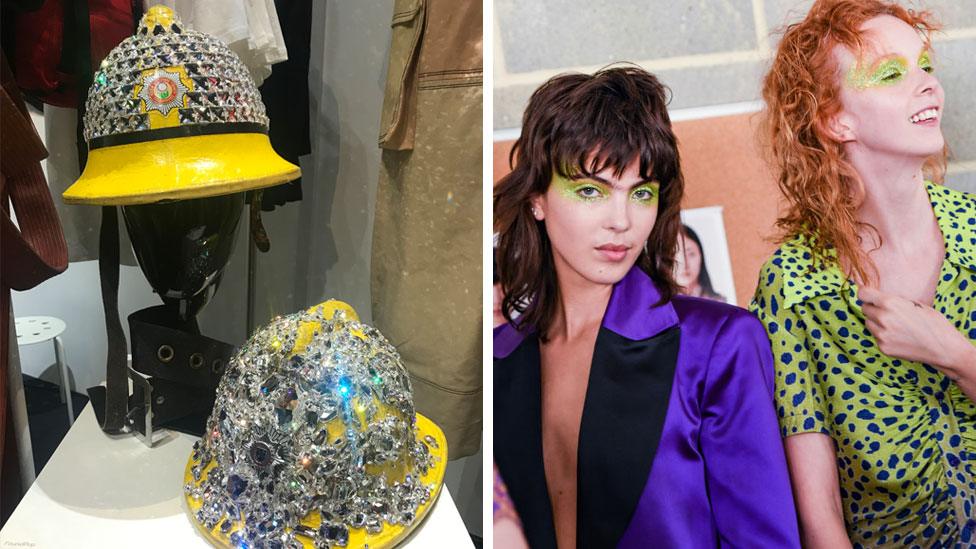
September is a big month in the fashion calendar, with fashion weeks happening in New York, London, Milan and Paris. Each city hosts a series of events over five days where top designers show off their new collections.
Last week was London's turn. Think lots of "out there" outfits, air kisses on cheeks and greetings of "babe, you look incredible!"
But this year, the normal small talk between shows, and at after-parties, was punctuated by discussions about - yep, you guessed it - Brexit.
Everyone from designers to models and garment-makers were keen to know the impact leaving the European Union will have on their industry, which is worth £32bn , externalto the UK's economy.
Despite fears about the possible impact of Brexit, London Fashion Week continues to attract the finest fashion talent from around the globe with designers from more than 19 countries showcasing their designs.
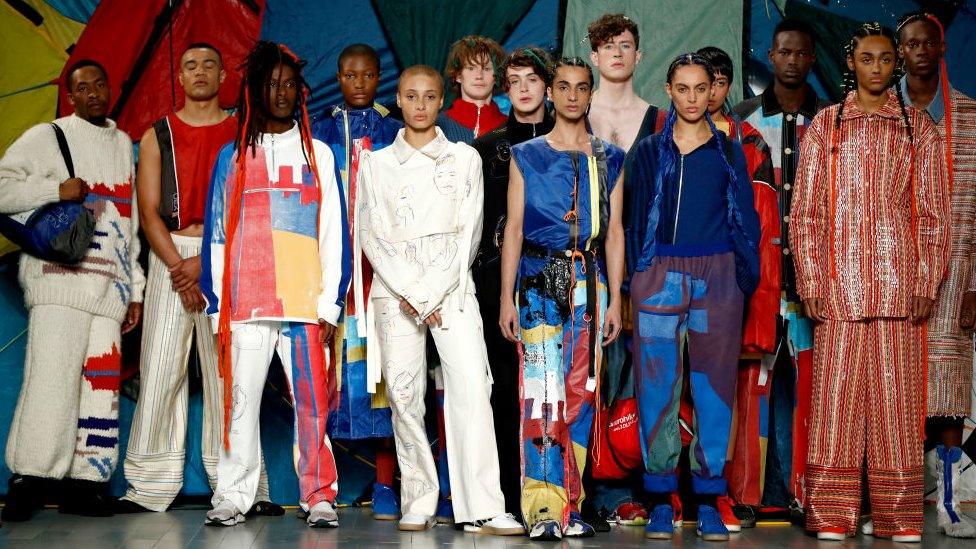
Bethany Williams is one of the British designers showing at Fashion Week
"The UK's fashion scene is still open and inclusive," says Paul Yuille, Director of International and Recruitment at London College of Fashion, UAL.
The college, which has produced famous brands like Jimmy Choo and J W Anderson, had three designers in this year's event.
"We've had an increase in applications from European students wanting to study fashion in the UK. It started after the 2016 referendum and this year has been no different."
But his positive outlook is not shared by everyone in his industry.
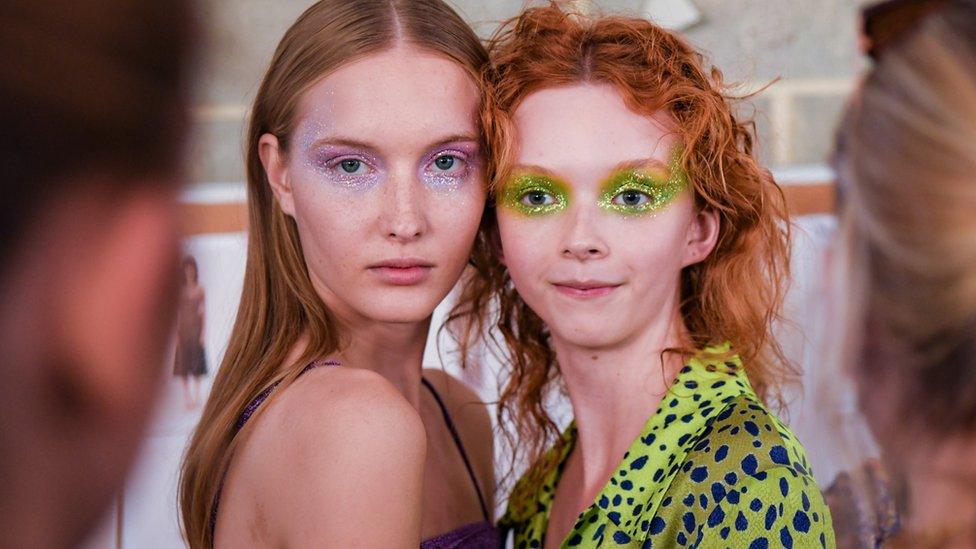
House Of Holland was one of the hot tickets at this year's London Fashion Week
Henry Holland is the founder of House of Holland, a designer label worn by celebrities like Kylie Jenner, Lizzo and Little Mix.
His London Fashion Week show on Saturday featured multi-coloured, leopard print dresses, slogan T-shirts and sparkly make-up.
When we meet him in his east London studio - an open space where Henry's dog, Little Miss Peggy, roams free - he tells Radio 1 Newsbeat the uncertainty over a no-deal Brexit is making things difficult for his business.
He says with so much unknown, it's hard to plan ahead.
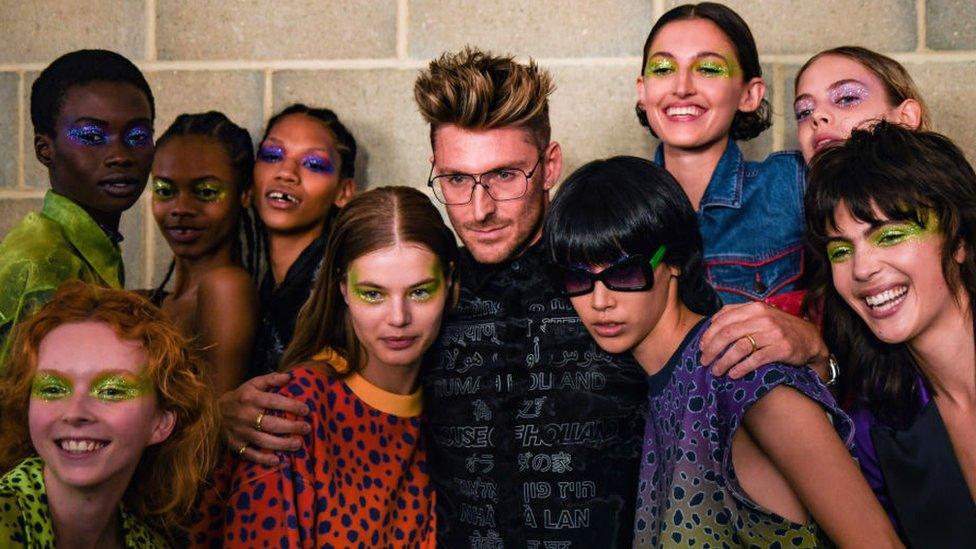
Henry Holland says Brexit is a "disaster as a business owner"
"I'm petrified about the future. I think people are anxious and cautious, so when your business is reliant on people spending money on clothes - anxiety and caution don't really work for growth."
On the prospect of overseas trade deals outside the EU with countries like Australia, the US and Canada, he was cautious and acknowledged that any benefits would take time to have effect.
"Yes, there are possibilities there, but that's not something we can do overnight."
'It's a total gamble'
Henry explained how exchange rates are causing him difficulties because of how fashion companies work.
In his industry, it's common for brands to forward sell. Essentially, they agree to sell clothes at a certain price a few months in advance.
But, he says it's hard to know how to price things because of the changing value of the pound.
"The clothes we showcase at fashion week will be on sale to the customers in February next year, so I have to place orders on those goods, this side of Christmas and this side of Brexit. With fluctuating rates it's a total gamble."
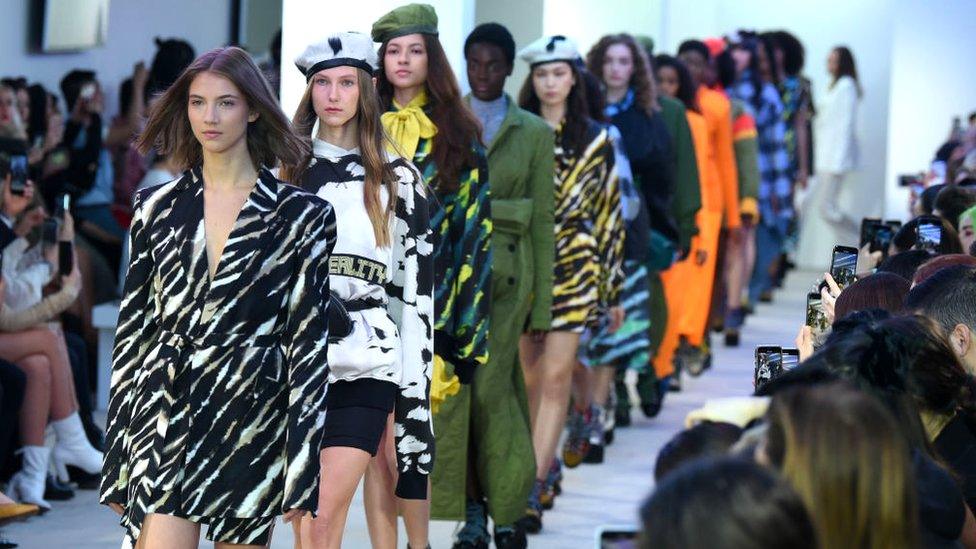
This year House of Holland held a fashion show open to the public
Brexit uncertainty isn't just impacting high end designers, but the high street too.
Jenny Holloway runs Fashion Enter, a clothing factory which makes 10,000 pieces every week for brands including ASOS and Marks and Spencer.
Although they're based in north London, 85% of their machinists are from eastern Europe.
Jenny says they're now struggling to recruit new staff.
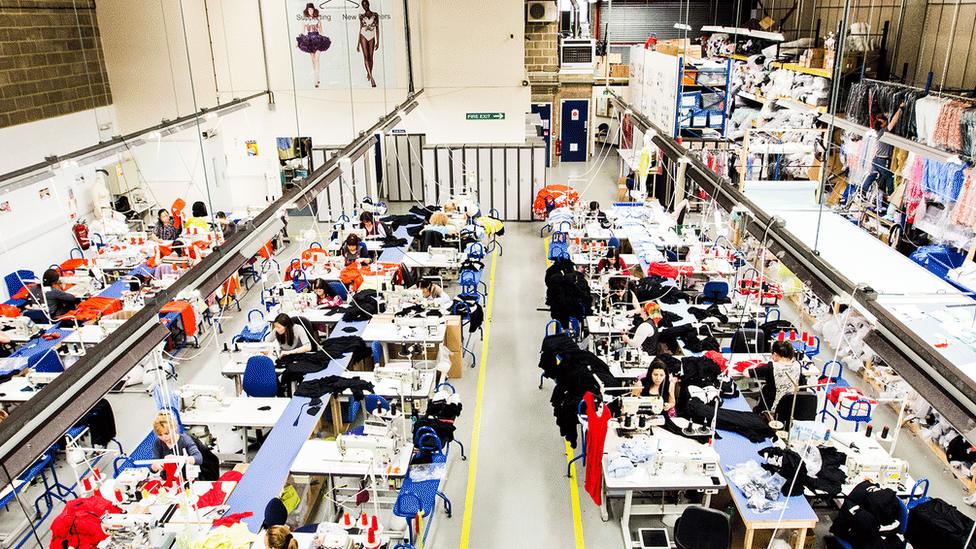
Jenny Holloway's factory manufactures clothes for a wide-range of retailers
"People aren't knocking on the door like they were before, asking if they can come and join us.
"It's been disorientating and frustrating for the workforce because they don't really understand how it will affect them."
When asked why she doesn't employ more Brits, Jenny says there aren't currently enough qualified people:
"We don't have British garment makers in the numbers we need. There's been a drop in the number since the 70s and 80s".

Fashion in numbers
Employs over 890,000 people, external in UK
Worth £32bn, external to the UK's economy
UK fashion, footwear and textile exports reached a record high of £11.5bn, external in 2018
It is estimated that only 1% of our clothing is recycled into new garments

But Jenny's determined to bridge the gap, she tells Newsbeat she's set up an apprenticeship course that teaches stitching skills to over-16s. She hopes these trainees will one day become employees.
"Why not make more clothes in the UK?" she says.
"We have a fashion academy next door and we're teaching fabric skills to young and long-term unemployed people, so we're hoping to have a circular economy."
The circular economy is an alternative economic system aimed at reducing waste and using as few resources as possible.
Although she's struggling with recruitment, Jenny's optimistic Brexit could push more clothing factories to open in the UK.
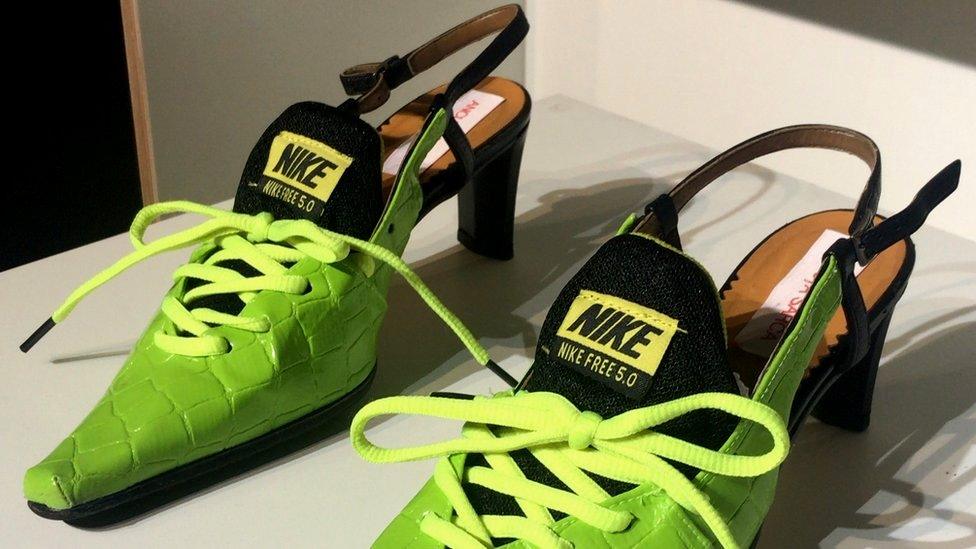
These kitten heel trainers show how upcycling is being used by designers
Since the 2016 referendum, she says she's had an increase in enquiries from brands interested in making products at her factory. She believes leaving the EU will lead to Britain offering more competitive prices.
"I'm confident that there will be growth within garment manufacturing and more garment manufacturers will pop up."
But what about the price of clothes? When it comes to the high street, Jenny says costs could go up because of taxes on imports and exports.
"I think if you're importing, and there's going to be delays and transport issues, logistics and who knows about tariffs, I can see prices going up."
'Give us a deal'
Now the people who look after the industry are getting involved.
The British Fashion Council (BFC) represents designers as well as planning London Fashion Week. It's asking the government to guarantee a deal that makes it easy for European models, machinists and fabrics to come in and out of the UK after Brexit.
In a showroom filled with gem-covered helmets, kitten-heel trainers and chain metal blazers, Caroline Rush - head of the BFC - tells Newsbeat about the benefits she believes EU membership brings to the industry.
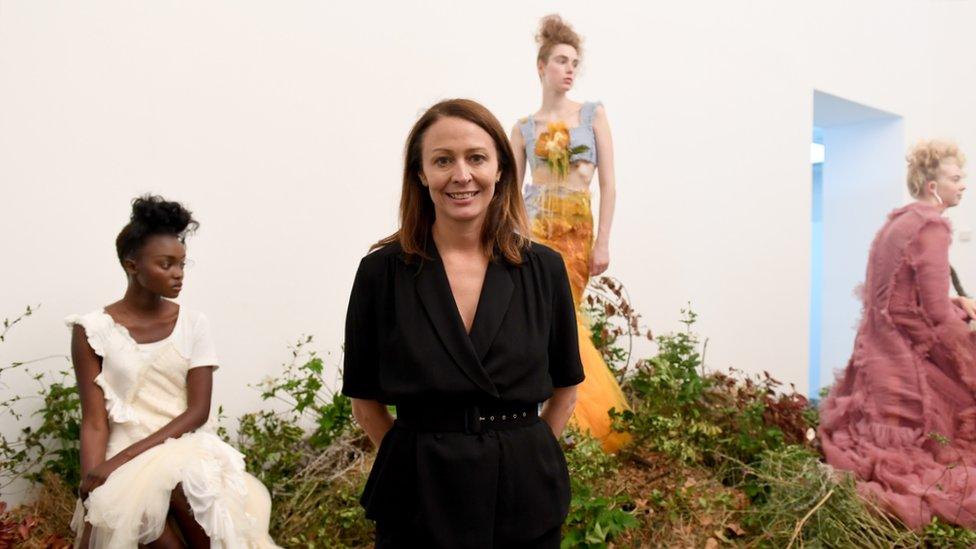
Caroline Rush says she's "working with fashion businesses to address Brexit challenges"
"The ease of trading within the EU can't be underestimated, you don't need paperwork, we can travel easily, there are VAT arrangements. There's one body as opposed to negotiating with 27 different territories."
The government doesn't want designers to panic and says it will "keep doing everything it can to support the UK's fashion industry".
Secretary of State for International Trade Liz Truss says "our designers, artists and creatives are the very best in the world and their success is part of what makes Britain great".

Follow Newsbeat on Instagram, external, Facebook, external, Twitter, external and YouTube, external.
Listen to Newsbeat live at 12:45 and 17:45 weekdays - or listen back here.
- Published18 September 2019
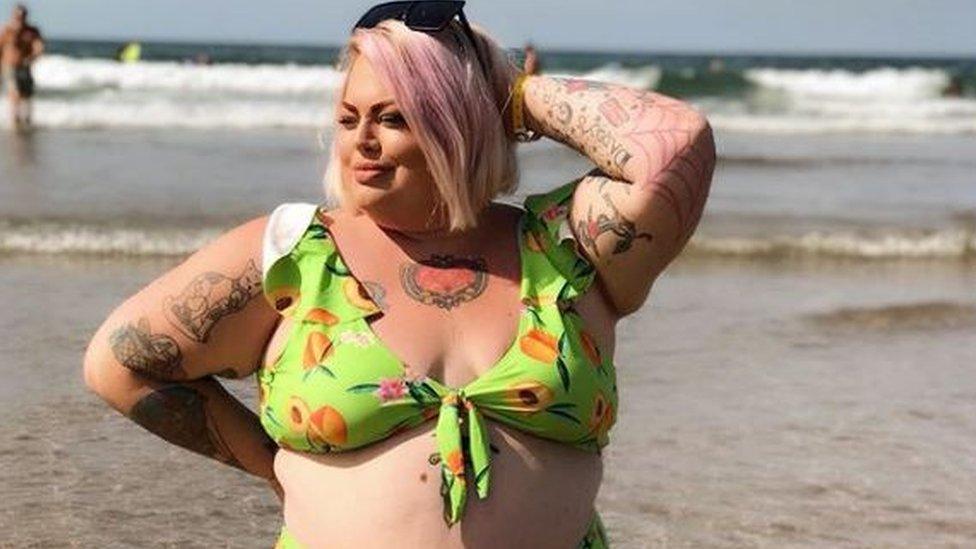
- Published11 September 2019
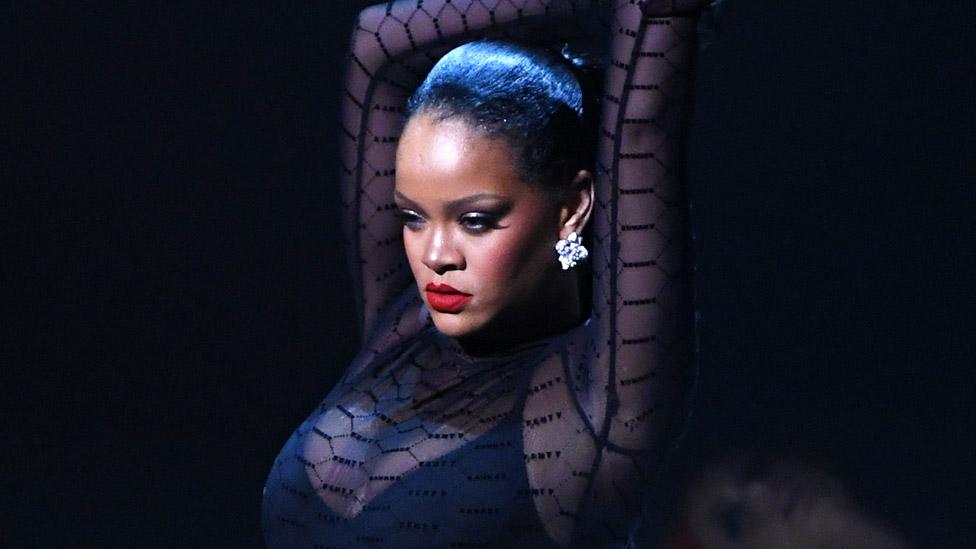
- Published16 September 2019
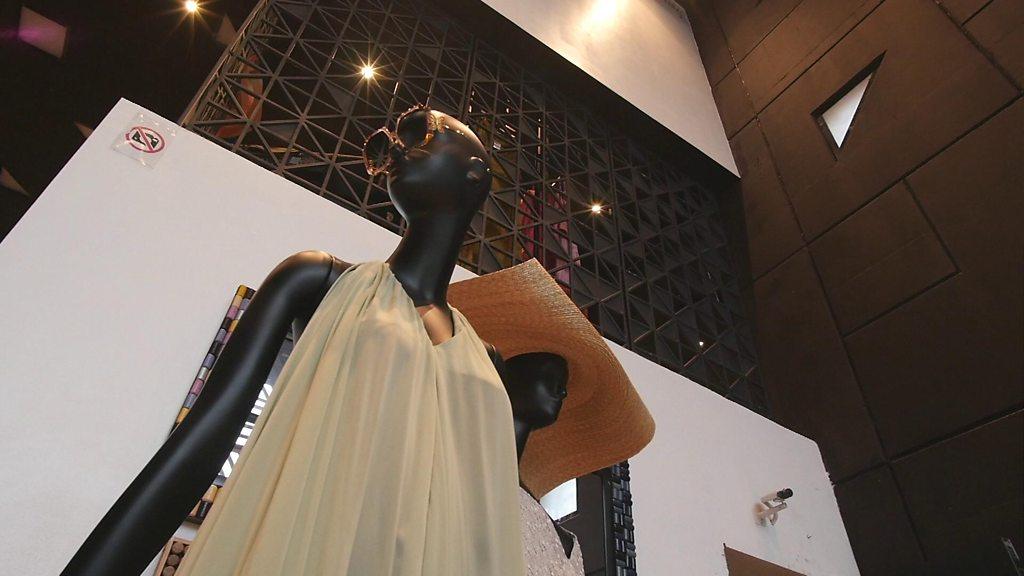
- Published13 September 2019
